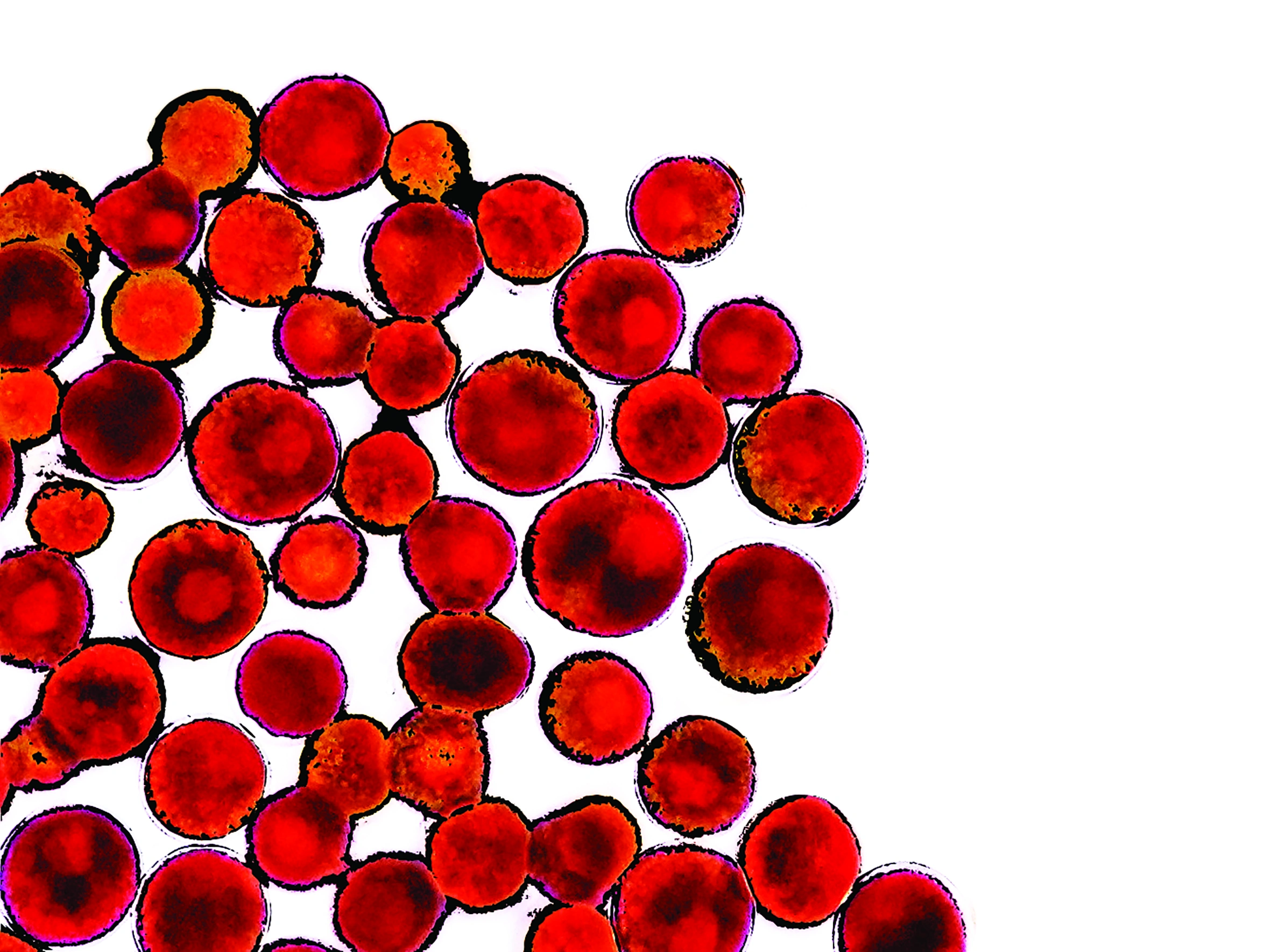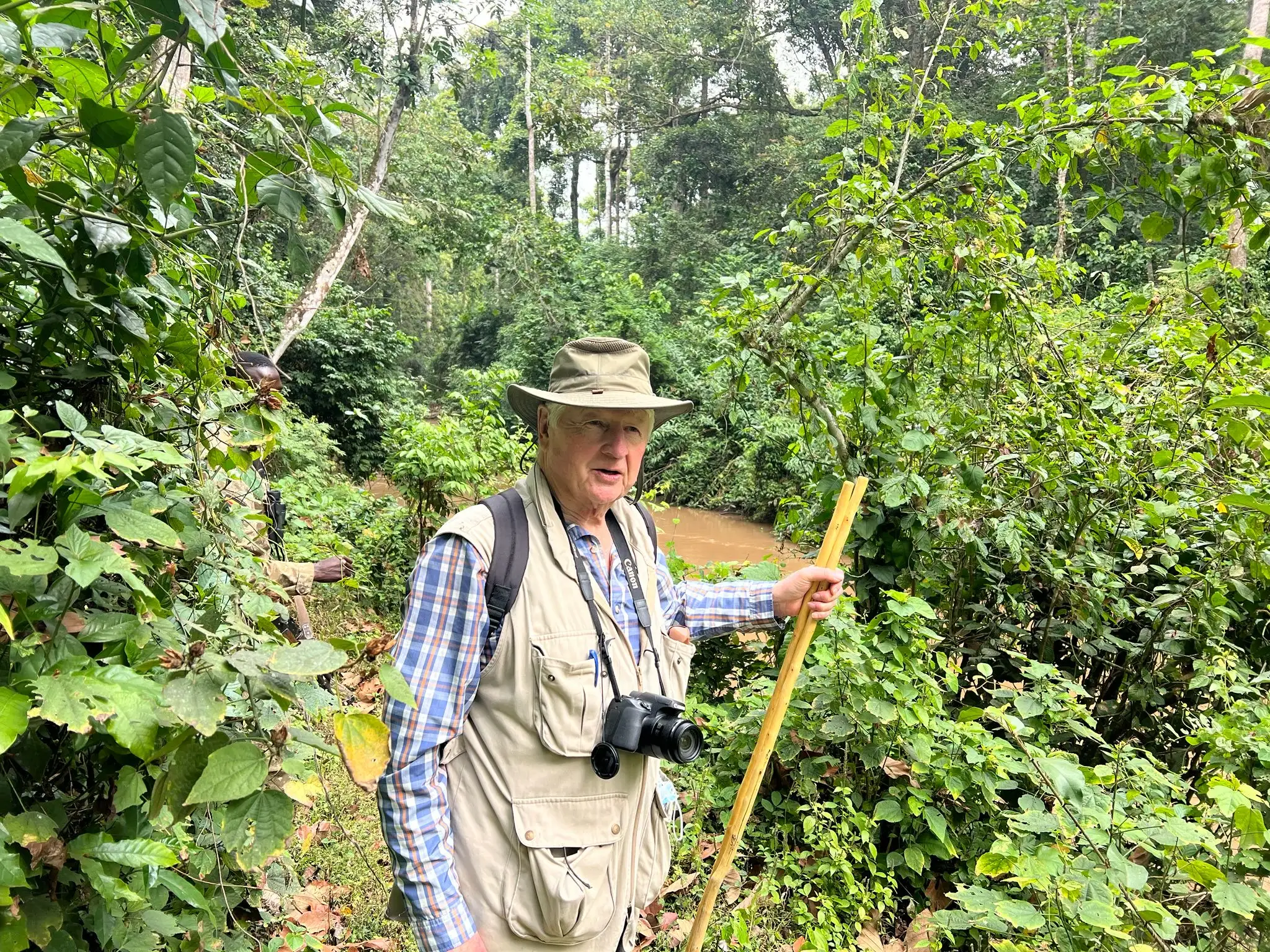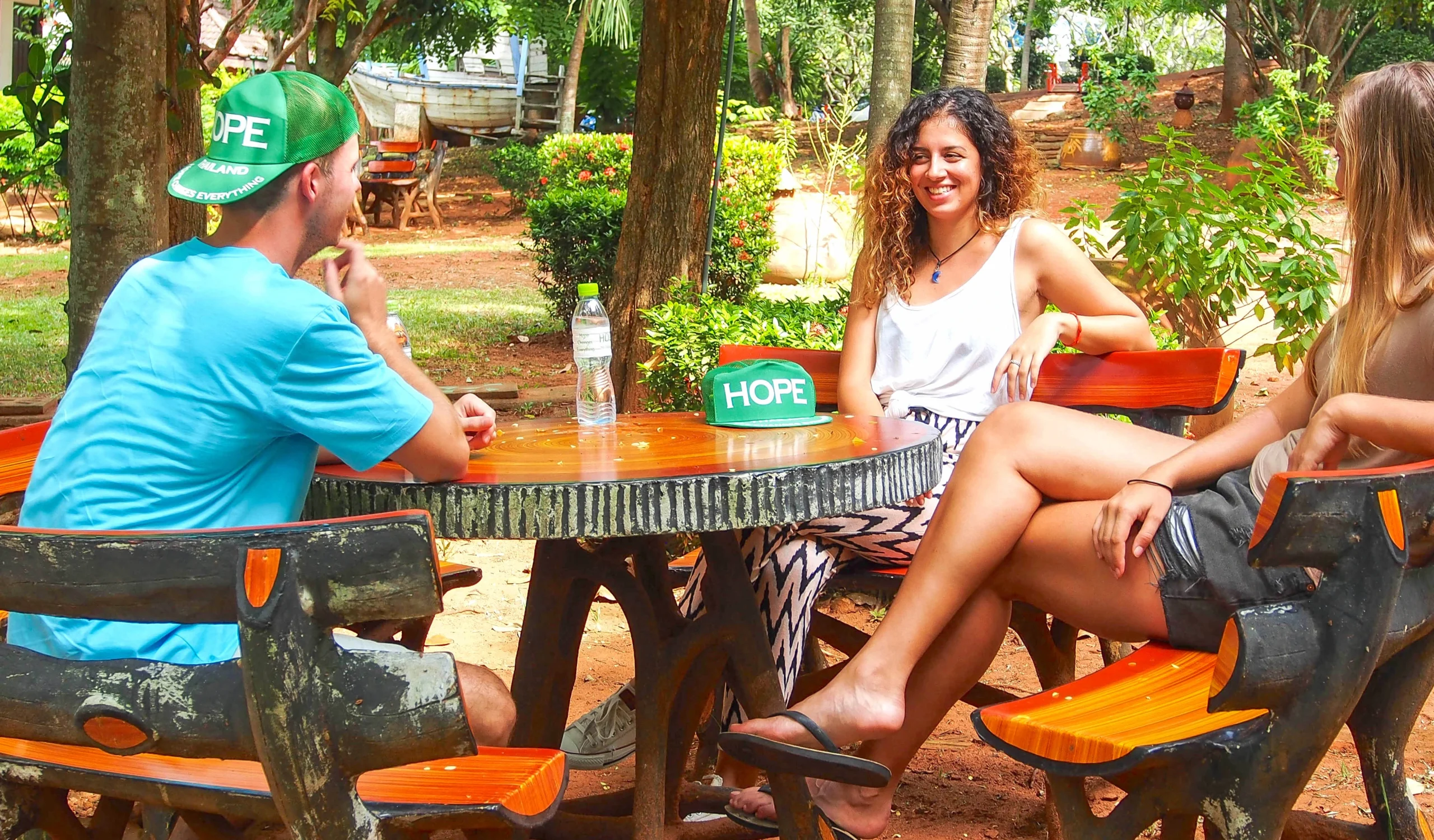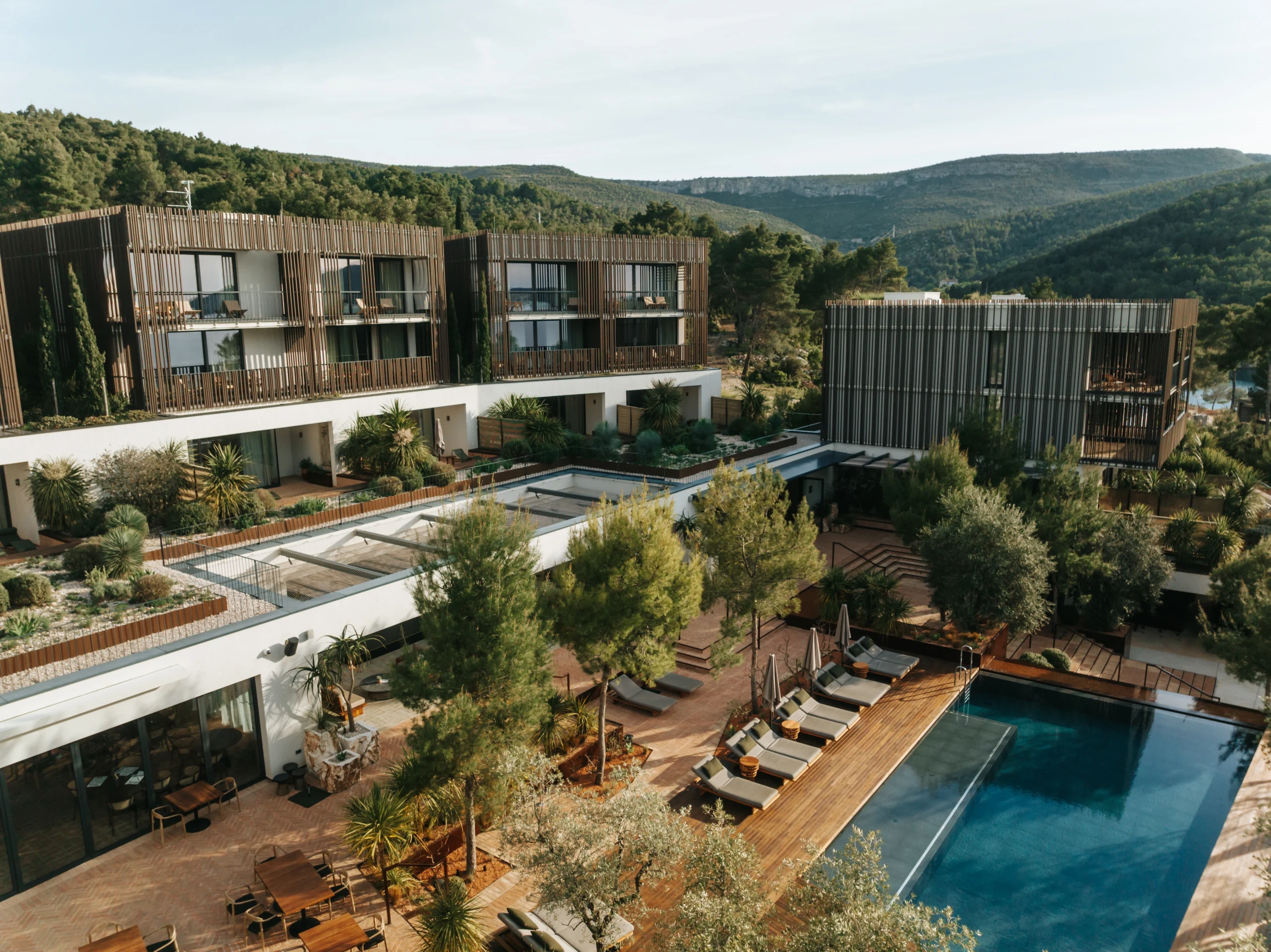How BGG became the powerhouse behind some of the world’s biggest wellness brands

John E. Kaye
- Published
- Lifestyle

With operations across three continents, BGG produces plant and marine extracts that reach millions daily. Now, as demand for natural health solutions accelerates, the company is expanding its global presence while keeping science at its core, finds John E Kaye
If you drink a supplement shot in the morning, snack on fortified gummies, or buy plant-based cosmetics, there is a good chance that BGG is involved in the supply chain. The company is one of the world’s largest suppliers of natural ingredients, producing and procuring solutions compounds that sit, often invisibly, behind some of the best-known wellness, pharmaceutical and food brands.
Founded in Beijing in 1995, it has grown into a multinational business with operations in Japan, the United States and, most recently, Switzerland, where it has established a new international headquarters. Its portfolio stretches across fruit and marine extracts, herbal essences, natural vitamins and next-generation sweeteners.
In an increasingly high-pressure world, people are looking for natural and convenient ways to maintain wellbeing, Juergen Nelis, BGG’s chief executive, told The European.
We operate at a scale that touches millions of consumers every day, yet our work is designed to remain in the background. We provide global brands with science-backed ingredients that deliver consistency, safety and performance, giving them the foundations they need to succeed. What sets us apart is the trust we build with our partners, because our success depends on enabling theirs. In the end, it’s about helping brands support consumers to stay at their best, rather than waiting for a cure when things go wrong.
The global natural health and supplements market is estimated to be worth more than 170 billion and is expanding at double-digit rates. Competition is fierce, with producers from Europe, the US and Asia all vying for share, from Japanese seaweed specialists to North American nutraceutical firms. BGG’s response has been to combine scale with integration, overseeing everything from raw material sourcing to laboratory validation.
At its flagship facility in Shilin, Yunnan province, vast photobioreactors glow red with Haematococcus pluvialis, the microalgae used to produce AstaZine, BGG’s natural astaxanthin antioxidant. The site lies in a pristine region best known for the Stone Forest, a UNESCO World Heritage Site, underscoring the natural setting in which the company cultivates its ingredients.
Clinical studies link the compound to cardiovascular, brain, skin, fertility and immune health, and it has become a staple ingredient in supplement lines worldwide. Astaxanthin is now a contested space, with Scandinavian and US rivals developing their own algae platforms, but BGG’s system in Shilin remains the largest of its kind and enables consistent production at volumes few competitors can match.
Astaxanthin is where we established ourselves as a global leader, Nelis said. But our advantage today is in the breadth of clinically proven ingredients we can bring to market.
Alongside astaxanthin, BGG has built a portfolio of other clinically studied formulations that target different aspects of health. ApplePhenon, extracted from unripe apples, is used in products for weight management, supporting both women’s health and health-forward athletes, with clinical studies showing improvements in skin condition, waist size and visceral fat reduction. FucoMax, meanwhile, which is derived from brown seaweed, has been studied for its role in gastrointestinal protection as well as immune and anti-inflammatory effects. TheraPrimE, a purer form of tocotrienols which have demonstrated stronger biological activity than tocopherols in many studies, is a potent antioxidant shown to support cognition and improve sleep.
The company also markets LingonMax and MyrtiPRO, berry extracts rich in anthocyanins, and ThinOgen, another seaweed-derived ingredient shown in human trials to support weight reduction, where subjects reportedly lost an average of 1kg in 30 days and 2kg over 90 days without dieting or lifestyle changes.
Beyond supplements, BGG supplies Vitosa, a new-generation stevia developed to mimic sugar’s taste profile, and liquorice derivatives used in both confectionery and cosmetics.
BGG’s state-of-the-art manufacturing sites in Changping and Shilin combine extraction capabilities with modern laboratories, ensuring that both local and imported botanicals meet strict specifications. From here, these products are exported worldwide. Subsidiaries in Japan and the United States serve their regional markets, and Switzerland functions as BGG’s international headquarters, anchoring the company’s global presence. From its base there, BGG strengthens ties with European customers and regulators while also supporting other regions, including the US, underscoring its role as a truly international business.

BGG’s growth reflects its history and its ambitions. The company was founded by pharmacist Chunhua Li, who trained in Chinese herbal medicine but argued that traditional remedies needed to be tested with modern science. It often cites Tongrentang, the Beijing apothecary that has supplied medicines since 1669 and once served emperors of the Qing dynasty. For BGG, the reference underlines a belief in continuity: natural ingredients can support health across generations when they are applied consistently and responsibly. Li also built links with the Institute of Medicinal Plant Development in Beijing, part of the Chinese Academy of Medical Sciences, which gave the business access to formal research networks. Those collaborations continue and have helped BGG build a reputation for reliability in a sector often criticised for weak evidence.
Increasingly, the company co-develops products with partners, advising on formulations and sharing expertise. The company stresses that many of these collaborations run over decades, with BGG sharing knowledge as well as ingredients to help products reach their potential.
We want our products to be judged against the highest scientific standards, Nelis explained. Anecdotes and marketing stories are not enough in this industry. What matters is reproducible data, rigorous testing and independent validation, because that is the only way to build lasting trust with partners and consumers.
For Nelis, that movement towards evidence and prevention marks the future of the sector. Consumers are no longer waiting until something goes wrong before reaching for a remedy but are seeking daily, natural ways to maintain wellbeing, he said. Our job is to make that easier, safer and more effective through the best that nature and science can offer.
Further information
Produced with support from BGG. To find out more about the company and its portfolio of natural health ingredients, visit www.bggworld.com
Read More: ‘The simple checks every man should do for breast cancer‘. Men can and do develop breast cancer, but late diagnosis means they face worse survival rates than women. Raising awareness and encouraging self-examination are crucial, writes Professor Dorothy Ibifuro Makanjuola.
Do you have news to share or expertise to contribute? The European welcomes insights from business leaders and sector specialists. Get in touch with our editorial team to find out more.
RECENT ARTICLES
-
 The European Reads: Kalman & Leopold: Surviving Mengele’s Auschwitz
The European Reads: Kalman & Leopold: Surviving Mengele’s Auschwitz -
 The pearl of Africa: Stanley Johnson’s journey into Uganda’s wild heart
The pearl of Africa: Stanley Johnson’s journey into Uganda’s wild heart -
 A new green dawn: inside Aston Martin’s turbulent start to Formula 1’s 2026 revolution
A new green dawn: inside Aston Martin’s turbulent start to Formula 1’s 2026 revolution -
 WPSL targets £16m-plus in global sponsorship drive with five-year SGI partnership
WPSL targets £16m-plus in global sponsorship drive with five-year SGI partnership -
 Need some downtime? Head to Nerja for some serious decompression
Need some downtime? Head to Nerja for some serious decompression -
 How a book becomes a ‘bestseller' (and it’s not what you think)
How a book becomes a ‘bestseller' (and it’s not what you think) -
 Fipronil: the silent killer in our waterways
Fipronil: the silent killer in our waterways -
 Addiction remains misunderstood despite clear medical consensus
Addiction remains misunderstood despite clear medical consensus -
 New guide to the NC500 calls time on 'tick-box tourism'
New guide to the NC500 calls time on 'tick-box tourism' -
 Bon anniversaire, Rétromobile: Paris’ great motor show turns 50
Bon anniversaire, Rétromobile: Paris’ great motor show turns 50 -
 Ski hard, rest harder: inside Europe’s new winter-wellness boom
Ski hard, rest harder: inside Europe’s new winter-wellness boom -
 Baden-Baden: Europe’s capital of the art of living
Baden-Baden: Europe’s capital of the art of living -
 Salzburg in 2026: celebrating 270 years of Mozart’s genius
Salzburg in 2026: celebrating 270 years of Mozart’s genius -
 Sea Princess Nika – the ultimate expression of Adriatic elegance on Lošinj
Sea Princess Nika – the ultimate expression of Adriatic elegance on Lošinj -
 Hotel Bellevue, Lošinj, Croatia – refined wellness by the Adriatic
Hotel Bellevue, Lošinj, Croatia – refined wellness by the Adriatic -
 Padstow beyond Stein is a food lover’s dream
Padstow beyond Stein is a food lover’s dream -
 Love really is in the air. How to spot a sky full of heart-stealing stars this Valentine's Day
Love really is in the air. How to spot a sky full of heart-stealing stars this Valentine's Day -
 Cora Cora Maldives – freedom, luxury and a celebration of island life
Cora Cora Maldives – freedom, luxury and a celebration of island life -
 Hotel Ambasador: the place to stay in Split
Hotel Ambasador: the place to stay in Split -
 Maslina Resort, Hvar – mindful luxury in the heart of the Adriatic
Maslina Resort, Hvar – mindful luxury in the heart of the Adriatic -
 The bon hiver guide to Paris
The bon hiver guide to Paris -
 Villa Mirasol – timeless luxury and discreet elegance on the island of Lošinj
Villa Mirasol – timeless luxury and discreet elegance on the island of Lošinj -
 Lošinj’s Captain’s Villa Rouge sets a new standard in private luxury hospitality
Lošinj’s Captain’s Villa Rouge sets a new standard in private luxury hospitality -
 Villa Nai 3.3: A Michelin-recognised haven on Dugi Otok
Villa Nai 3.3: A Michelin-recognised haven on Dugi Otok -
 The European road test: The Jeep Wrangler Rubicon
The European road test: The Jeep Wrangler Rubicon



























